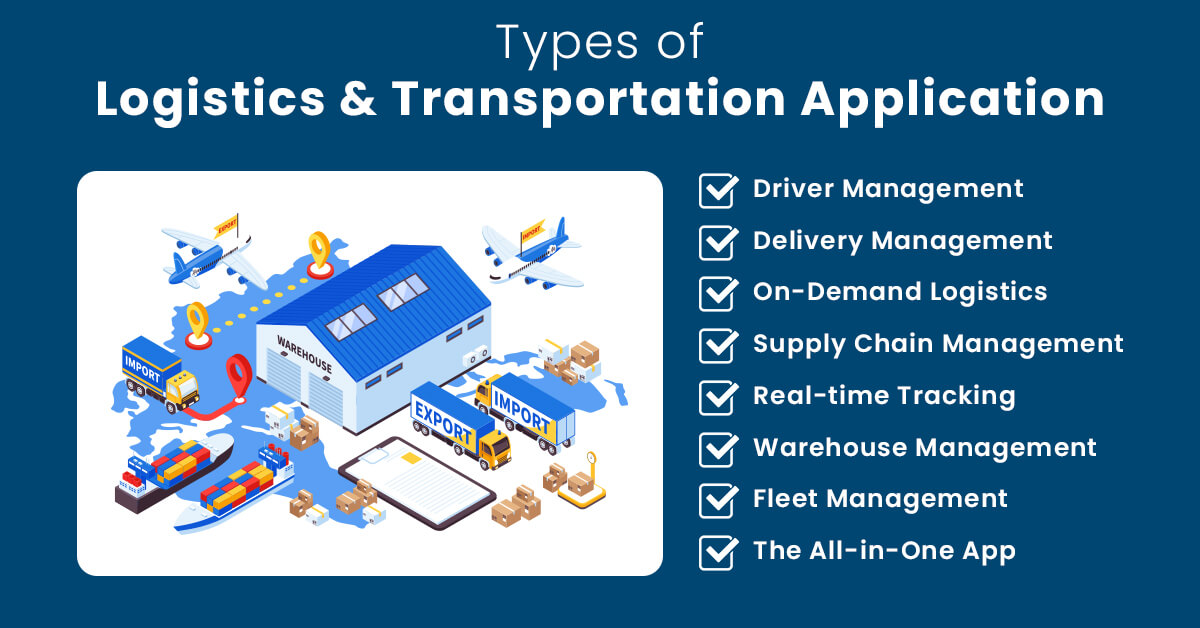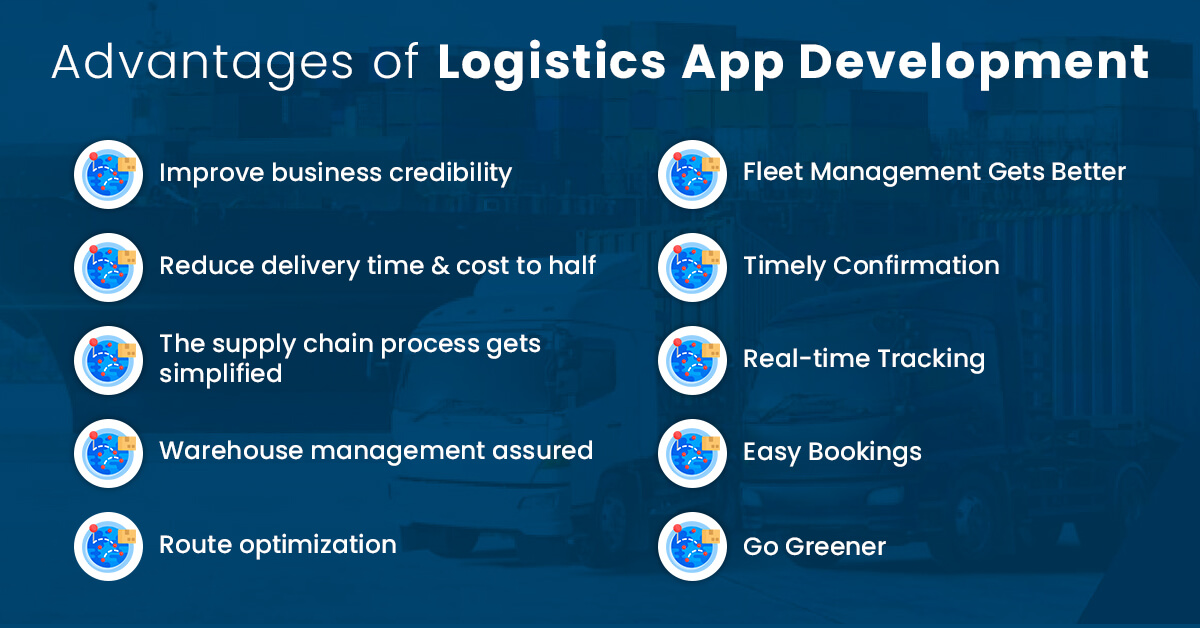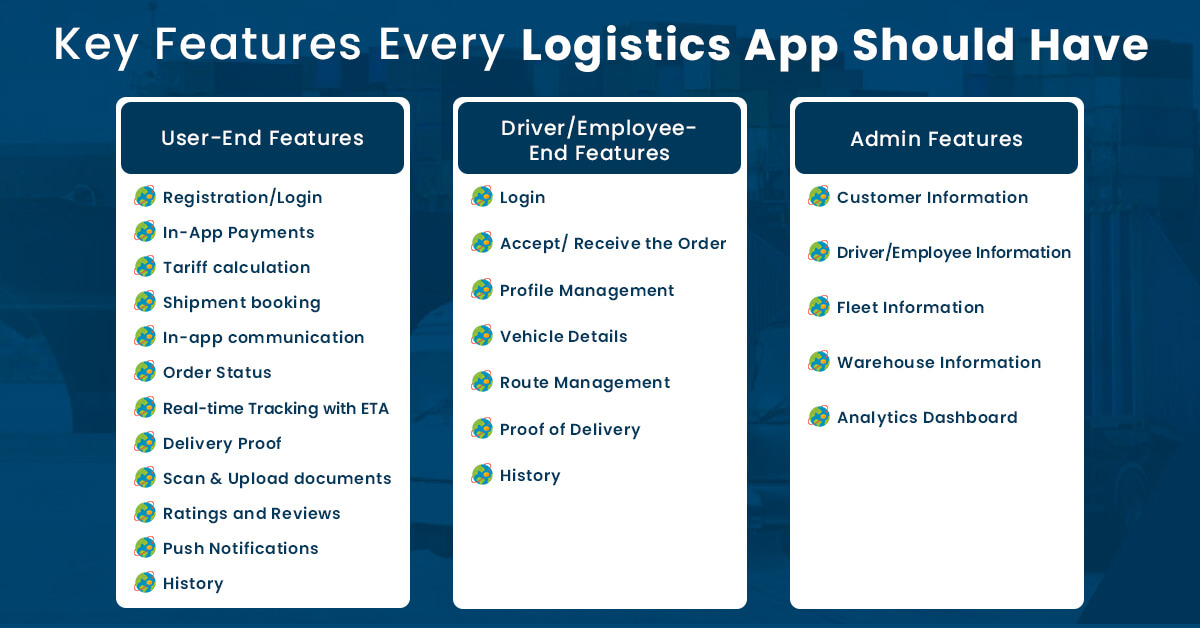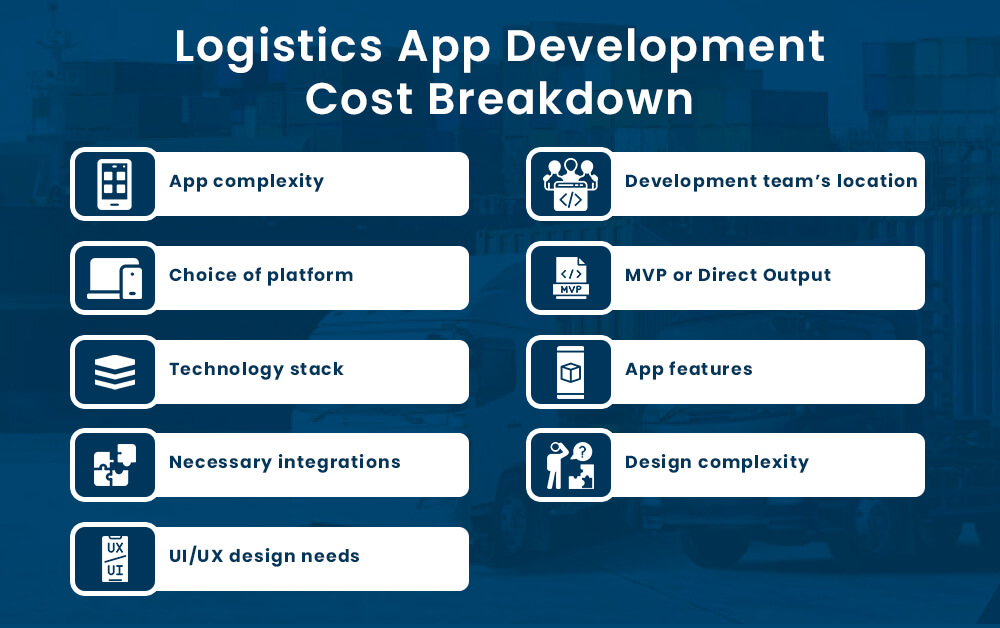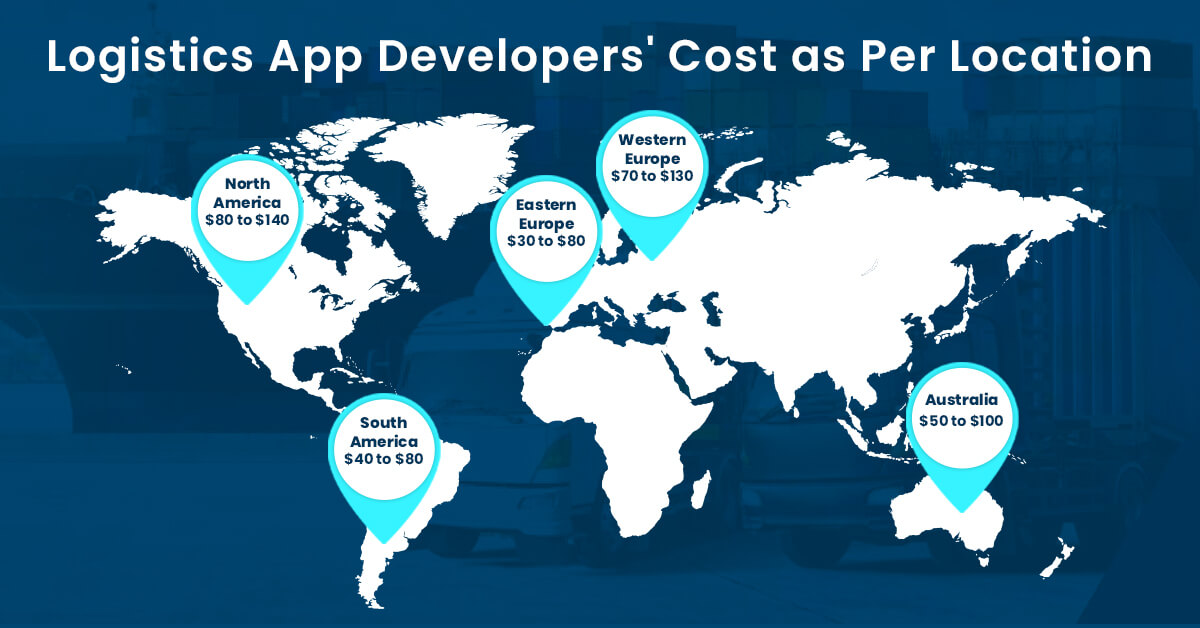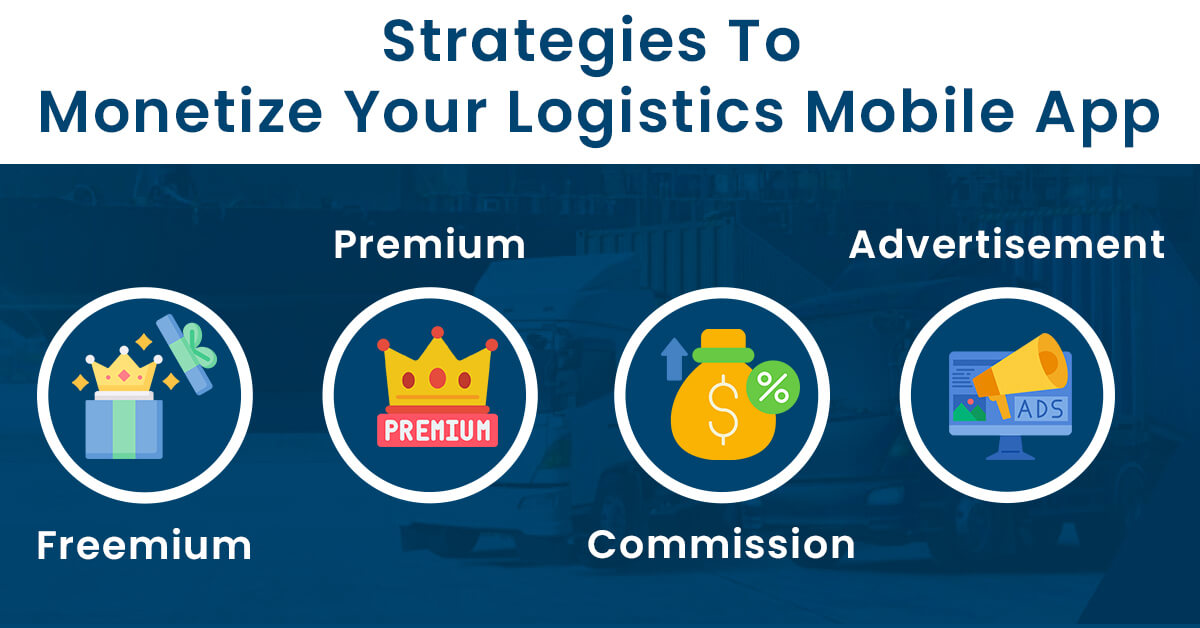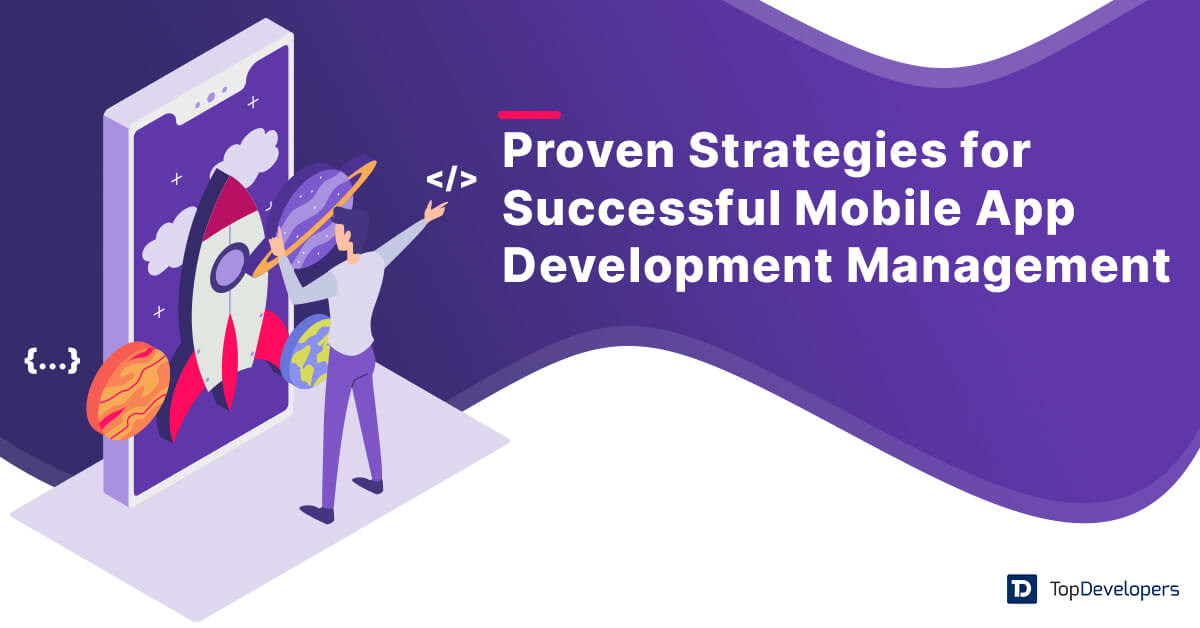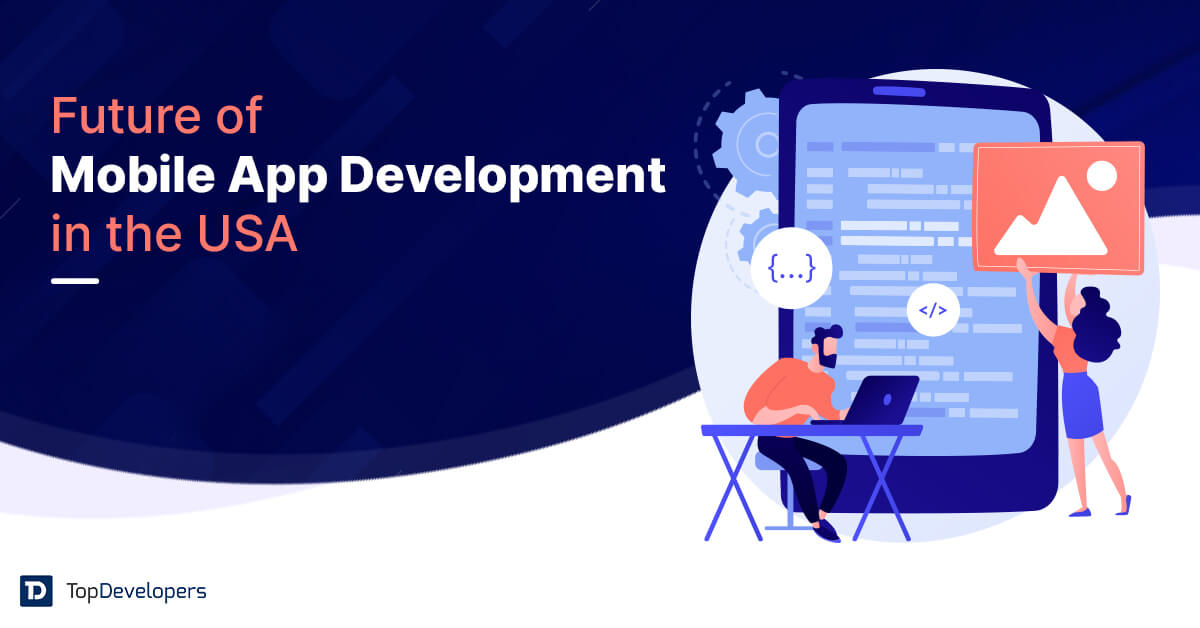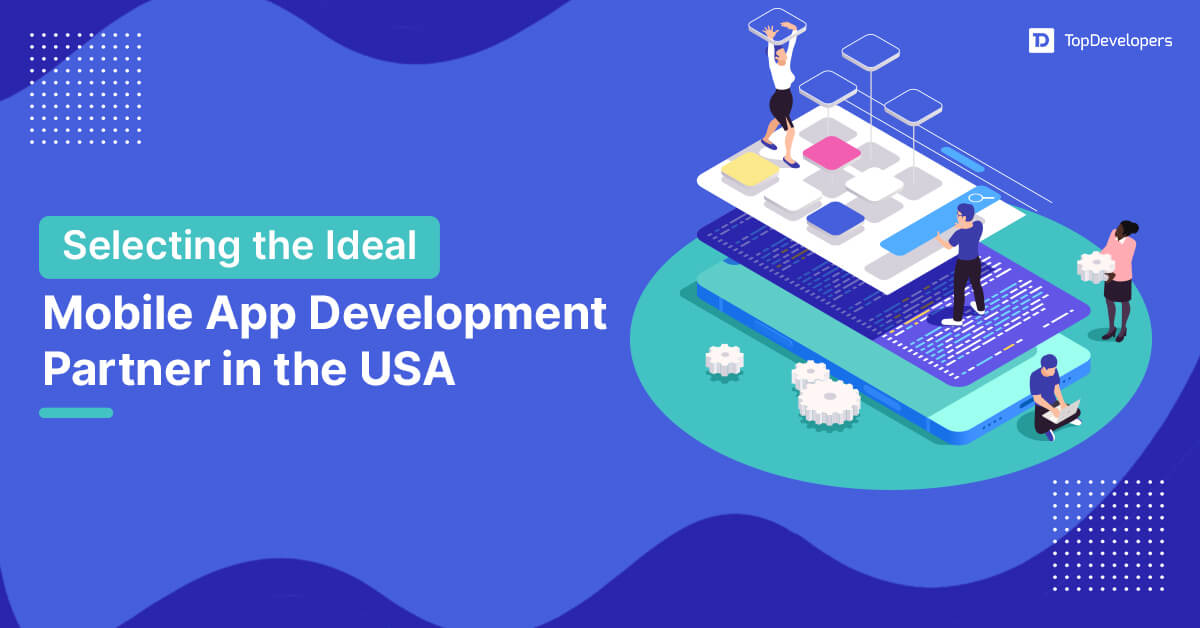
Logistics is an integral part of every industry that’s expected to hit a market size of $14.08 trillion by 2028. The moving pieces must work in tandem to ensure a seamless flow from the order to the delivery process. When any of these pieces malfunctions, the entire process can go for a toss. It’s easily viewed from a couple of things-
- Calls from customers demanding the whereabouts of their package.
- Drivers contacted for vehicle breakdown for the issues that could have been avoided way before.
- Concerned personnel found the item was out-of-stock when it arrived at the warehouse for collection.
It means the logistics space needs a highly organized system that links customers and suppliers seamlessly and ensures flawless, transparent delivery. An on-demand logistics software helps streamline operations with fleet management, warehouse management, employee management, and customer management- anywhere and anytime! The plethora of benefits surge revenue in the supply chain management software market and is projected to reach $20.27 billion in 2024.
Logistics application development is a good fix to all the issues, and the breadth of advantages makes it a lucrative opportunity to tap into. In this article, we will walk you through the basics of logistics app development strategy, covering types of logistics apps, features to build, technologies to leverage, app development process, and logistics app development cost estimation alongside a market overview. Let’s dive in to change the logistics game for your business!
Table of Contents
- What is Logistics app development?
- Market overview of the Logistics industry
- Seamless types of Transportation & Logistics app
- What are the sustainable benefits of having a Logistics app development?
- Best features that you must have in your Logistics app
- How much does Logistics app development cost in 2024?
- Synergy of Mobile app development team size to leverage
- Main challenges to overcome during revolutionizing Logistics app development
- Best ways to successfully monetize Logistics apps
- Unlock the Power of Logistics app development!
- FAQs:
- What is the difference between a logistics app and a transportation app?
- Can I integrate my logistics app with existing systems?
- How much does it cost to create a transportation app?
- What Should Be The Team Structure For Logistics Mobile App Development?
- Which Trending Technologies are Used in Logistic App Development?
- What modules should logistics software contain?
- How is AI used in logistics?
- Who are the top logistics companies?
- What are the top business domains that will benefit from logistics app development?
What is Logistics app development?
Logistics app development is a systematic process of engineering logistics applications that starts with clearly defining objectives and features to build and ends with testing and final deployment. Following a step-by-step approach, businesses will get a logistics app that works seamlessly across a range of devices from smartphones to tablets. Also, it helps logistics businesses with hassle-free management of goods during their transportation and ensures delivery at the right time and at the right location.
Market overview of the Logistics industry
Substantial growth in the E-commerce industry, attributed to the growth of the logistics market size, is expected to grow at a CAGR of 6.3% between 2024 and 2032 to reach a value of $18.35 trillion by 2032.
Technological advancements, just-in-time inventory system adoption, regulatory changes and compliances, the evolution of supply chain management, and containerization made their contribution to the historical growth in the global logistics market size. The introduction of AI, ML, and IoT technologies to logistics solutions improves route optimization, warehouse management, predictive analytics, and more.
AI-powered logistics solutions help businesses gain a competitive edge in the market with data-driven insights, real-time data, and analytics. AI-powered SmartHaul TMS launched by the US company allows businesses to make informed decisions, speed up vehicle inspection, and provide instant access to loads and bookings. Additionally, supply chain efficiency is improved with transparency and centralization of the booking process.
North America, Europe, Asia-Pacific, South America, the Middle East, and Africa are the regions leading the logistics market and making most of the revenue.
Seamless types of Transportation & Logistics app
Various types of transportation and logistics apps meet the distinct needs of businesses in the logistics industry. Go through app types to identify which model fits well with your specific logistics needs.
Driver Management
With driver management apps, logistics businesses can manage drivers and their data. It allows tracking of the driver’s location and stops they took during the journey, ensuring they are using the defined path and not taking unnecessary breaks. The profile management with relevant details and reviews highlights what drivers should improve to ensure the best services. The driver profile also helps the admin to allocate specific transportation tasks to the specific driver.
Delivery Management
Delivery management apps are built to manage goods delivery from one location to another through a network of courier services. In addition to a delivery facility for now or pre-scheduling, the app features tracking packaging so that users can track goods in real-time, and notifications are sent for delivery status. Ahead of goods shipping, users know about the drivers to whom the package is assigned, followed by an optimized route. Such apps keep the customers informed about their product delivery and ensure fast, reliable deliveries.
On-Demand Logistics
The on-demand logistics solution meets the instant gratification needs of the users by allowing users to book logistics services such as truck booking meeting the users’ needs for cargo booking in a few taps. For example, Uber Freight is a popular on-demand logistic app that enables trucking businesses to know the vacant space in the truck for cargo and allows users in need of cargo delivery to get it shipped at reasonable rates.
Supply Chain Management Software
With centralized management of all the data related to logistics shipments such as cargo weight, cargo shipment time, location, and more, the business owner has more visibility into logistic activities at every step of the way. It enables smoothly managing and controlling cargo in the supply chain. The improved visibility and analysis unveil hidden facts to improve services.
Real-time tracking apps
Tracking apps allow every stakeholder involved in domestic or international logistics business to stay informed about the delivery status, location, and routes. For example, the My Fleet Tracker app allows the admin to know real-time information about drivers and connect with them instantly. The drivers can share their current locations and statuses, and view the shortest routes along with directions to reach the destination quickly and safely.
Warehouse Management App
This type of Logistics app will store the data of products in your inventory. The admin can access that data with only a single tap. The app will give information about the accessibility of every item, stock availability in the inventory, information of employees working in the warehouse, etc.
Fleet Management App
This is ideal for a transportation or courier delivery business to manage the fleets involved. This type of logistics and transportation app can give information about your vehicles regarding maintenance days, related parameters like fuel/gas consumption, routes taken, etc. It can also help you assign a vehicle to each employee while tracking its live whereabouts during delivery time.
The All-in-One App
A dedicated app for your users and drivers, along with an admin panel that will help you overlook each of the business operations. Independent drivers will be allocated for each delivery as per the demand. A good example of this is the Uber app.
This is a robust application that will oversee and manage all operations. Some of the features that are included in such types of logistics apps are –
- Order Status
- Order Transit Details
- Order Delivery Details
- Customer Details- Profiles, Payment, Order History
- Fleet and Driver Details
- Warehouse Inventory Details
What are the sustainable benefits of having a Logistics app development?
The technology integration with the logistics business allows the logistics industry to innovate the services and operations for smooth and faster deliveries. Logistics app development can have many benefits, including:
Improve business credibility
Businesses opt for logistics services to simplify product shipment and deliveries. When there’s an app for getting logistics services done, it’s fabulous. The user-friendly interface ensures that businesses can search, browse, and book the services required hassle-free and leave a long-lasting impression of a great experience. Overall, customer satisfaction and best experience delivery strengthen clients’ trust in the logistics businesses and improve credibility.
Reduce delivery time and cost to half
Real-time tracking, predictive analytics, and timely updates keep the logistics services under control. For example, when there are landslides or poor weather conditions, routes are optimized, ensuring timely deliveries at reduced fuel expenses. The insights and transparency in the logistics process allow logistics businesses to save time and cost on product deliveries and increase their bottom line.
The supply chain process gets simplified
Transparency in the supply chain process is a must to manage inventory and ensure efficient deliveries. Logistics apps help businesses to access inventory levels, track orders, and other factors accurately, making the supply chain process easier and faster. With blockchain technology integration, transactions in the supply chain are secure and transparent, which streamlines supply chain operations.
Warehouse management assured
Optimizing warehouse space and ensuring inventory levels are up-to-date is vital for logistics business success. Warehouse management facilitated by logistics applications provides accurate information about products shipped and products in stock, which helps prevent out-of-stock nightmares. With an AI-powered solution, warehouse space is optimized, ensuring maximum products are kept within the same, thereby reducing infrastructure costs.
Route optimization
Long routes, when taken by drivers during logistics businesses, increase time and fuel costs for product deliveries. When optimized routes (The shortest path with the least traffic jams and other roadblocks) are provided to the drivers by the logistics application, they can complete the deliveries in reduced time and with the least fuel consumption.
Fleet management gets better
The logistics app development solution enables effective fleet and warehouse management that enhances business productivity with no risk of data loss and data manipulation.
Timely confirmation
The real-time updates about logistics deliveries keep the business and users informed thereby eliminating the possibilities of delay and ensuring timely deliveries.
Real-time tracking
The logistics mobile app features real-time tracking that allows logistics businesses to keep tabs on a fleet of vehicles, routes that drivers are taking, and much more. It helps logistics companies to provide necessary help when vehicles need it in an emergency.
Easy bookings
Effortless online booking allows logistic businesses to free up the staff from time-consuming, repetitive, and tedious tasks so that they can invest this time in improving services and satisfying users.
Go greener
The digital processes bid goodbye to the paperwork thereby reducing carbon footprint. Mobile app development companies help in creating excellent logistics apps that enable data storage and operations execution hassle-free with no paperwork involved.
Best features that you must have in your Logistics app
Considering that you want to develop an All-in-One type of super logistics and transportation application, there are three major dashboards to consider while developing the app – user, driver/ employee, and admin. Here are some features that a logistics application can have:
User-End Features
- Registration/Login: New users need to register to use the application. Log-in is needed to track courier status.
- In-App Payments: Users should be able to make in-app payments securely with a 2-step authentication mechanism for safe transaction processing.
- Tariff Calculation: This allows users to estimate the cost and time required for logistics services in a specific region.
- Shipment Booking: Users can schedule the transportation of their goods by providing the address for pickup and deliveries and the quantity and type of shipment to transfer.
- In-app Communication: This feature enables users to connect with the driver or shipment team by directly sending messages to them.
- Order Status: Users should be able to track the status of their parcels right from the order accepted by the logistics team to the point of delivery. This sense of transparency plays a major role in increasing customer loyalty towards the brand.
- Real-time Tracking with ETA: This goes hand-in-hand with point #3. Customers should be able to track their parcels with estimates of when the parcel will reach the destination, intermediate stops taken between the point of origin and the point of delivery, details of courier personnel delivering the parcel, and initiations as to the delivery delay.
- Delivery Proof: After the customer receives the parcel, they should be requested to digitally sign a receipt as proof.
- Scan and Upload documents: In case of interstate or inter-country deliveries, certain norms must be followed in terms of documents to be submitted for a successful order acceptance by the logistics company. The application should allow consumers to upload such documents for verification.
- Ratings and Reviews: A user should be able to provide app ratings and reviews for the logistics mobile app as well as view ratings and reviews given by other users.
- Push Notifications: Push Notifications will keep the user updated on the status of transit and any unexpected delays.
- History: This can be introduced as an additional feature. Good to have for users to track previously delivered parcels.
Driver/Employee End Features
- Login: The employee has to log in to the logistics app to see parcels assigned to be delivered.
- Accept/ Receive the Order: The driver has to “accept” the parcels assigned from the logistics app to change the status of the order.
- Profile Management: The driver can edit his details whenever required. Additionally, the employee can also set their availability to present or absent, and the data will be shown in the admin panel to track employee attendance for the day.
- Vehicle Details: This section can indicate the vehicle assigned to the driver, details like fuel consumption, number/ weight of goods to be carried, toll charges in the selected routes, and distance to be covered can be seen via the logistics app for drivers.
- Route Management: This feature will update the drivers on the best route possible to be taken during transit for speedy delivery.
- Proof of delivery: Successful completion of shipment is enabled through a mobile app wherein drivers can capture and submit proof of delivery.
- History: This logistics app feature will indicate the history of deliveries made to date by drivers.
Admin Side Features
The admin dashboard should cover all the functionalities of the on-demand logistics app:
- Customer Information: Order statuses, payment information, and customer details information.
- Employee Information: List of employees present/absent, information of drivers delivering a particular parcel, driver’s using vehicle, and related vehicle information.
- Fleet Information: Inventory of vehicles, condition of vehicles, information on vehicles requiring servicing.
- Warehouse Information: Location status of every parcel, delivery destination, and dates associated with the same.
- Analytics Dashboard: To view how the app is actually functioning in managing and integrating information.
How much does Logistics app development cost in 2024?
With a lot of functionalities and design requirements of logistics app development, it’s difficult to determine logistics app development costs. Here, the factors that help businesses get an estimate for the same are explained.
Logistics app’s complexity
To stand out from the competition, logistics businesses try to incorporate as many features as they know in the logistics application, which creates a mess up and leads to underutilization of the app. Also, the development cost will surge proportionately. It can be avoided with MVP development for logistics solutions.
The simple logistics app (MVP) with minimum functionalities costs between $10,000 to $25,000. Medium-sized apps with little complexity cost $30,000 to $50,000. Launching a full-fledged logistics solution with enormous functionalities and great design costs around $50,000 or more.
Choice of platform
The choice of platform (Android or iOS or cross-platform) for logistics app development is imperative to get the app developed within budget due to device fragmentation issues. When the app is developed for both major platforms using a native development approach, high-performance and scalable apps are the results that consume money and time. On the contrary, a cross-platform development approach facilitates app development in reduced time and cost.
For example, with a native development approach, you get a basic logistics app developed at $30,000 and $25,000 for the Android and iOS platforms, respectively. On the other hand, you get a logistics app built for both major OSs at $40,000 using a cross-platform development approach.
Technology stack
Tech stack selection significantly impacts the logistics app development cost estimation because an advanced tech stack with rare technologies and tools leverage requires senior and tech specialists to hire. Such programmers are expensive to hire, and also, working hours increased to develop those advanced functionalities and complex designs. It ultimately translates into a higher cost of logistics app development.
For example, building a simple logistics app costs $25,000 for the iOS platform, and when an AI-powered logistics app with intriguing features is required, the cost will ramp up to $40,000.
Necessary integrations
The third-party integrations made the lives of developers easier as they don’t need to build all the functionalities from scratch. Seamless API or plugin integration with logistics app enables the functionalities that save development time and cost for businesses. Different API integrations are popular in the logistics app development space. Such as:
- Registration and authentication: Auth0, OneLogin
- Payments: PayPal, Stripe, WePay, Amazon Pay
- Front-end development: Angular, Flutter, or Kotlin
- Back-end development: Node JS, Python, or PHP
- Database management: MongoDB, MySQL
- Cloud computing: AWS, Microsoft Azure, Google Cloud
- Navigation: Google Maps API or other maps API
Additionally, logistics businesses want to integrate logistics apps with ERP and CRM systems to get a single view of all the logistics operations and improve customer experience. It’s possible to use APIs or shipping management solutions that are-
- Shippo API
- EasyPost API
- FedEx API
- USPS API
- Shipwire API
These APIs facilitate logistics apps to access shipping rates, get tracking information, know labels, check inventory and orders, and gain shipping-related data from carriers such as USPS, UPS, and FedEx.
UI/UX design needs
Budget planning is greatly affected by UI/UX design requirements because every business is looking for a phenomenal design that delivers world-class experiences. It requires proper planning ahead of time for interface intricacies, data visualization needs, and other factors. A healthy discussion with the designer ensures the logistics have great design without budget overruns. Typically, the UI/UX design of the logistics app goes up to $10,000 to $15,000.
Development team’s location
The logistics app development team structure mostly includes developers, designers, QA engineers, solution architects, business analysts, and project managers. The cost of hiring the team varies according to the location in which they are working. The hourly rates of the development team of popular outsourcing destinations give you a rough idea of how much you need to spend to build a logistics app.
- North America = $80 to $140
- South America = $40 to $80
- Western Europe = $70 to $130
- Eastern Europe = $30 to $80
- Australia = $50 to $100
Post Launch Support
The cost estimation of logistics app development may also cover post-launch support. For example, best logistics app developers will be needed to release security patches or provide support after the app goes live. Hence, the need of support is required. Also, they can maintain and update your logistics app according to user feedback.
Minimum Viable Product or Direct Output
A Minimum Viable Product (MVP) is released with the most essential functionalities of the application. Then, based on customer feedback, better versions are created. This empowers logistics companies to decide which features to retain, drop, or add – thereby saving investment in developing a full-fledged application with features that are not necessary.
Here comes the part you’ve been waiting for. If you want to develop an app with all the features mentioned earlier, a ballpark estimate would be around $25,000-$40,000 and can go as high as $100,000-$150,000 or more in case of customization or advanced functionalities to be added.
Features
Logistics mobile app development idea is when conceptualized and documented, the list of features that are going to form the basis of the app and the features that differentiate the app in the market are enlisted. The estimated average cost to develop a logistic app with a basic features set goes around $20,000 and when the app is enhanced with advanced features, the cost increases accordingly as it requires tech expert involvement in the development team.
Design Complexity
Basic design in transport and logistics app development won’t allow businesses to gain major traction. Capturing users’ attention requires creating an appealing design that attracts the users at first glance, allows them to browse through services easily, and enables them to book logistic services glitch-free. As the design complexity increases, the mobile logistics cost shoots up accordingly. When you hire remote developers, you will get a chance to get unique designs crafted at lower rates as remote development trims the development cost by one-third.
Must Read: How Startups can Reduce Mobile App Development Cost?
Synergy of Mobile app development team size to leverage
The effort required to develop the logistics app will equal the cost incurred. Either opt for a team of efficient developers or hire a top mobile app development company to create your logistics application.
The most important members of the logistics mobile app development team will include:
- Project Manager: To overlook timelines and deliverables to be accomplished
- Developers: Android/ iOS/Cross-platform: To program the application and make it work
- UI/UX Developers: To design the User Interface (UI)and User Experience(UX)
- Testers: To test all functionalities of the app before the market release
Main challenges to overcome during revolutionizing Logistics app development
Even if you are testing the product in the market with MVP development, quality logistics app development is not an easy endeavor. It’s a complex process where businesses are expected to face many challenges as the project rolls on the development floor. However, knowing and proactively addressing the challenges ensures app development without any delay and glitches. Here’s the round-up of all the challenges.
- Selecting the right logistics app type and minimum set of valuable features is challenging because users judge the product with these features.
- Tech stack selection is difficult due to the variety of technology options while ensuring it doesn’t impact financial planning.
- Architecture design is concerning because it directly impacts the app’s performance, stability, and scalability.
- Craft elegant designs that help drivers on the road and not distract them while driving.
- Update the app at defined intervals not too often, which otherwise overwhelms the users or trouble them for downloading the update.
- GPS technology enables logistics applications to work seamlessly, but some countries restrict businesses from accessing geographic data. Identify such laws before proceeding with app development.
- Logistics apps not only deal with real-time tracking or sending the status of the shipment but also store critical data that may cause potential threats if stolen or manipulated.
Best ways to successfully monetize Logistics apps
Logistics businesses build logistics applications to digitize the logistics processes and operations, which, in turn, bring a range of benefits to the businesses. However, they expect investment in logistics app development to pay off in the future. Using the right mix of app monetization models, logistics businesses can make good revenue.
Freemium
This monetization model is quite popular in the initial stages, wherein users are made to download the app for free. After some time, when users find the logistics app useful and want to access advanced features, they are unlocked after paying for the same.
Premium
This revenue-generating model works for comprehensive apps where logistics businesses are quite sure about the comprehensiveness and design appeal of the application that makes users pay to download the app. A one-time fee provides a lifetime license to use the app.
Commission
The app owner turns the platform into a marketplace where drivers seeking logistics services get registered and start offering logistics services. For every logistic service delivered by the driver and transaction that occurred through the platform, a pre-defined percentage of the total earnings is deducted as commission.
Advertisement
Logistics businesses could allow third-party businesses to display relevant ads that are useful for users in some cases. It drives revenue to the businesses based on CPI, CTR, and others. Also, users are asked to unlock an ad-free version in exchange for a specific amount.
Unlock the Power of Logistics app development!
Logistics businesses are joining the digital race to connect users and drivers, ensure route optimization, enable convenient doorstep delivery and seamless inventory management, and maximize delivery volumes in minimum time. It helps businesses reduce logistics costs, diminish delivery times, and eliminate inefficiencies. However, the advantages are enjoyed to the fullest when the logistics app is built right.
The logistics app development guide reveals types of logistics apps, features, technology stack, expected development-related challenges, and app development cost in detail, which helps great starting. When considering logistics application solutions, choosing a reliable, experienced logistics app development company is crucial. Collaborate with the right partner to get an appropriate solution.
FAQs:
What is the difference between a logistics app and a transportation app?
The logistics app encompasses a wide range of functionalities, from material procurement and inventory management to warehousing and dispatching. On the flip side, the transportation app takes care of goods management from one location to another.
Can I integrate my logistics app with existing systems?
Logistics app integration with existing systems like- ERP, CRM, and TMS makes it possible to enhance the results with limitless data flow and connectivity.
How much does it cost to create a transportation app?
The transportation app development cost ranges between $20,000 to $50,000 depending on factors like- app complexity, platform selection, tech stack, team composition, and design requirements.
What Should Be The Team Structure For Logistics Mobile App Development?
The team composition for logistics app development looks like this-
- Project manager
- Business analyst
- App Developer
- UI/UX designer
- QA engineers
- DevOps
Which Trending Technologies are Used in Logistic App Development?
Artificial intelligence, machine learning, the Internet of Things, GPS, blockchain, cloud computing, and analytics are trending technologies used for the development of advanced logistics apps.
What modules should logistics software contain?
Logistics software application contains the following modules- shipment tracking, billing, route planning, warehouse management, inventory management, transportation management, order management, driver management. and fleet management.
How is AI used in logistics?
AI leverage in logistics facilitates demand forecasting, smart inventory management, route optimization, quality control in warehouse operations, demand pattern identification in the supply chain, and forecast traffic conditions.
Who are the top logistics companies?
FedEx, USP, USPS, DHL, XPO, DTDC, and CEVA are the top logistics companies.
What are the top business domains that will benefit from logistics app development?
Manufacturing, agriculture, e-commerce, healthcare, food industry, and transportation businesses greatly benefit logistics app development.
 Avantika Shergil
| Mar 11, 2024
Avantika Shergil
| Mar 11, 2024
An enthusiastic Operations Manager at TopDevelopers.co, coordinating and managing the technical and functional areas. She is an adventure lover, passionate traveler, an admirer of nature, who believes that a cup of coffee is the prime source to feel rejuvenated. Researching and writing about technology keeps her boosted and enhances her professional journeying.
